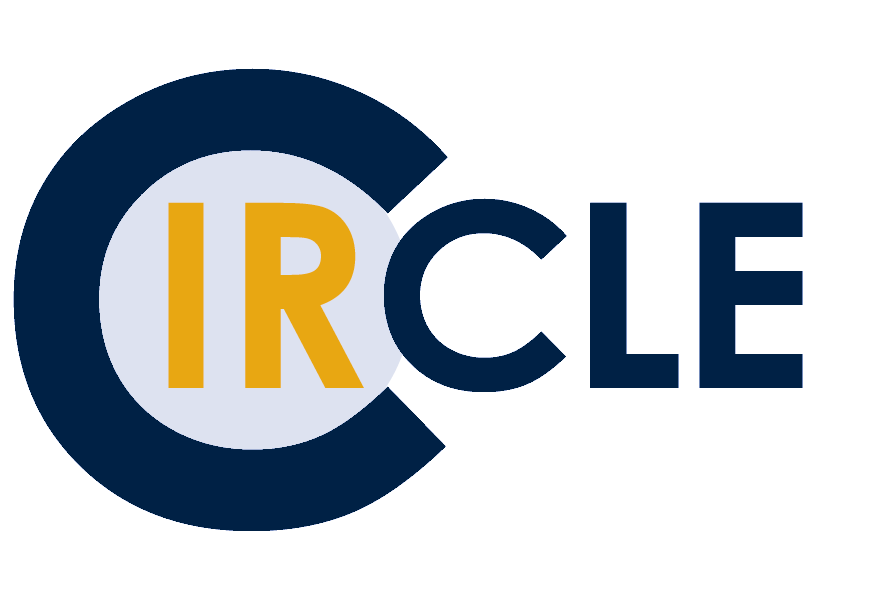Submission
For UBC faculty, researchers, and staff, cIRcle offers a mediated deposit service. You provide the permission and the content, and we deposit the item on your behalf.
Requirements and eligibility for deposit may vary depending on the content type or permissions.
What can I submit?
Research articles, presentations, open educational resources (OER) and more can be deposited to cIRcle. View the cIRcle Content Guidelines for more on eligible contributors and content types.
Consult the Large Deposits tab for batches of more than 10 items.
Copyright and Permissions
You must have the necessary rights and permissions to complete the cIRcle Non-Exclusive Distribution License including the right to share the work under a Creative Commons License.
View the Copyright & Permissions tab for help identifying permissions for published articles.
Submission Instructions
Use the cIRcle Item Submission Form if you are:
- the rights holder eligible to complete the cIRcle Non-Exclusive Distribution License
- submitting 5 items or less
|
| |||
Get help
Check the FAQ or contact the cIRcle Office for assistance.
Copyright & Permissions
In general, as the author or creator of a work you own the copyright until you voluntarily transfer it to a third party such as a publisher. Publishers typically grant self-archiving rights to authors to allow them to deposit copies of their articles in an institutional repository under certain conditions.
New to self-archiving? View our blog post for step-by-step instructions: Publishing grant-funded research in cIRcle: the Green Open Access Route.
Check permissions and find the permitted self-archiving version before you deposit to cIRcle:
Check permissions
Verify your publisher's self-archiving policy to determine if you have permission to deposit a version of your article in an institutional repository:
- Review the publication agreement you signed with your publisher
- Use the Jisc Open Policy Finder (formerly SHERPA/RoMEO) database of publisher and journal open access policies
- Look for open access sharing policies on your publisher’s web site
Article Versions
Most publishers only permit self-archiving for pre-publication versions of articles. Look for the permitted version type in your publisher's self-archiving policy:
- Submitted Manuscript (Preprint): The author’s originally submitted manuscript, prior to peer review and publication
- Accepted Manuscript (Postprint): The author’s final accepted manuscript (AM or AAM) is the version submitted to the publisher for publication. It contains all revisions made during the peer-review process, but not any layout or copy editing done by the publisher. This is the version most commonly accepted for deposit.
- Version of Record (Publisher version): The final version of the work produced by the publisher including copyediting, typesetting, logos, etc. This version is rarely eligible for self-archiving.
This diagram illustrates the different manuscript versions from submission to publication.
Version Statement
Most publishers require articles submitted to the repository to include a version statement and citation to the published version. If your publisher does not provide a specific version statement template, use the following format:
- Submitted manuscript (preprint) version: This article has been accepted for publication in [Journal Title] Published by [Publisher].
- Accepted manuscript (postprint) version: This is a pre-copyedited, author-produced version of an article accepted for publication in [insert journal title] following peer review. The version of record [insert complete citation information here] is available online at: xxxxxxx [insert URL and DOI of the article].
Get help
Start with our guides to self-archiving:
- Author’s Guide to Self-Archiving, Publication Versions, and Permissions.
- Publishing grant-funded research in cIRcle: The Green Open Access Route
Learn more about Open Access (OA) and OA publishing support offered by UBC’s Scholarly Communications & Copyright Office:
- What is Open Access?
- Copyright and Author Rights
- UBC Open Access Publisher Discounts
- UBC Open Access Fund for Social Sciences and Humanities
Ask questions or request a consult:
Student Work
Graduate
Theses or Dissertations
Students should review the Theses and Dissertations instructions.
Non-thesis Graduate Coursework
The UBC Graduate Research collection in cIRcle is for non-thesis graduate student work at UBC Vancouver and Okanagan. All work destined for this collection must be evaluated and approved online by the students' course instructors or supervisors.
Follow the instructions on the Graduate Research (Non-thesis) page.
If you have received a notification about approving a student's work, see the cIRcle Graduate Research Submission Instructions for further information on completing the approval process. Note that the course instructor or supervisor names will not be present on the project’s cIRcle webpage.
Undergraduate
All undergraduate work must be evaluated and approved by a course instructor or supervisor before it can be deposited in cIRcle.
In order to submit undergraduate work, please:
- Fill out the Student Submission Approval Form. Only one form is required per course or project.
- Review the “How do I submit?” section of our Undergraduate page with your students or contact the cIRcle Office for a consultation.
Large Deposits
Complete the Content Proposal Form for projects requiring consultation or large batches of content (i.e. more than 10).
The form must be filled out by the project sponsor or supervisor.
Review the form for more information about our Content Guidelines and policies.
